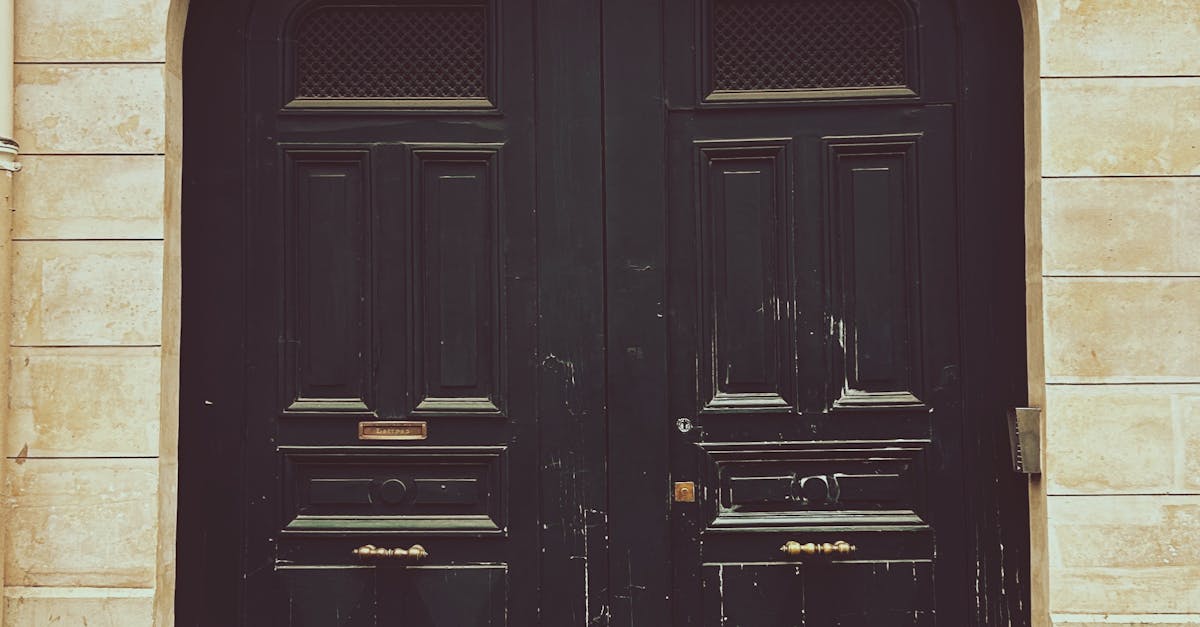
Table Of Contents
Common Faucet Issues
Leaky faucets are among the most common issues homeowners face. A dripping tap not only wastes water but can also lead to increased utility bills if left unattended. Over time, washers and seals can wear out, causing water to seep through. In some cases, mineral buildup can exacerbate the problem, limiting water flow and increasing the risk of further damage. Regular maintenance and inspections can help in identifying these issues early.
Another frequent concern involves a faucet that has become difficult to operate. This might manifest as stiffness when turning the handle or a complete inability to open or close the tap. Such problems may arise from sediment accumulation or wear in the cartridge or valve. Ignoring these signs could necessitate more extensive faucet installation and repair work later on if the components are not replaced or serviced promptly. Identifying these common faucet issues allows homeowners to address them before they escalate into more significant plumbing concerns.
Signs That Indicate You Need a New Faucet
Recognising the signs that indicate you need a new faucet can save you from future inconveniences. If you notice persistent leaks or water pooling around the base, it might be time to consider a replacement. Another clear signal is when the water flow becomes irregular, which could indicate an internal blockage or deterioration. Rust or mineral buildup around the faucet suggests underlying issues that may not be easily fixable.
Other indicators include an unpleasant odour or taste in the water, which can be a sign of contamination. Frequent repairs can become costly, leading to a more prudent choice of opting for new faucet installation and repair instead. If your faucet has outdated technology or materials, upgrading could not only resolve existing problems but also enhance the functionality and aesthetic of your kitchen or bathroom.
Costs Involved in Faucet Installation
The costs associated with faucet installation can vary significantly based on several factors, including the type of faucet being installed and the complexity of the job. Basic installations might range from a few hundred dollars, especially for simple models that don’t require extensive plumbing work. However, more elaborate faucets or those needing additional modifications to existing plumbing can lead to higher expenses. It's essential to consider not only the price of the faucet itself but also potential labour charges.
Faucet installation and repair often demand a skilled tradesperson, which can add to the overall cost. Plumbers typically charge an hourly rate, and the duration of the job can be influenced by the intricacies involved. Homeowners should also be aware of any additional costs, such as disposal fees for the old faucet or purchasing new fittings and accessories. Conducting thorough research and obtaining multiple quotes can help in understanding the market rates and securing a fair price for the services.
What to Expect in Terms of Pricing
The costs associated with faucet installation and repair can vary significantly depending on several factors. Basic installations often range from a few hundred dollars, especially if the plumbing is straightforward and no additional parts are required. However, complexities such as needing to replace old pipes or handle flooring issues can increase the final bill. It is advisable to get multiple quotes from local plumbers to ensure you receive a reasonable estimate for the work required.
When considering expenses, it’s important to factor in not only the cost of the faucet itself but also any potential service fees and labour charges. Most licensed plumbers charge an hourly rate, which can differ based on their experience and the region. In addition, purchasing a high-quality faucet may save on future repair costs and enhance the longevity of the installation, making it a worthwhile investment in the long run.
Finding a Qualified Plumber
When searching for a qualified plumber, it's essential to check their credentials and experience, particularly in faucet installation and repair. Start by seeking recommendations from friends or family members who have had similar work done. Online reviews and ratings can also provide insight into a plumber's reliability and quality of service. Additionally, it's advantageous to ensure that the plumber is licensed and insured, which protects you in case of any unforeseen issues during the installation process.
Once you have a shortlist of potential plumbers, arrange for quotes and brief interviews to gauge their expertise. This step allows you to clarify what services they offer regarding faucet installation and repair. Ask about their previous experience with different types of faucets and any warranties they may provide. A reputable plumber should be transparent about their processes and willing to answer any questions, helping you feel more confident about your choice.
Tips for Selecting a Reliable Professional
When looking for a qualified plumber to handle faucet installation and repair, it’s important to start with a solid list of potential professionals. Online reviews and testimonials can provide insight into the quality of their work and customer service. Recommendations from friends or family can also be invaluable. Always check for current licensing and insurance to ensure that you're engaging a tradie who meets industry standards and can operate legally within your region.
Once you have a shortlist, arrange for quotes from the plumbers. This not only helps you gauge pricing but also allows for discussions about their experience with similar jobs. A reliable professional should be willing to explain their methods and provide clarity on the process involved. Effective communication is a key sign of professionalism, as it indicates that the plumber prioritises customer satisfaction throughout the project.
FAQS
Will a plumber install any type of faucet?
Most plumbers can install a variety of faucet types, including kitchen, bathroom, and utility faucets. However, it’s always best to confirm with the plumber about their specific expertise and experience with the type of faucet you need installed.
How long does it take for a plumber to install a faucet?
The time it takes to install a faucet can vary depending on the complexity of the installation and the plumber's experience. Generally, it can take anywhere from 1 to 3 hours for a standard faucet installation.
Are there any additional costs I should be aware of when hiring a plumber for faucet installation?
Yes, in addition to the installation fee, there may be costs for additional materials, like plumbing fittings or supplies, as well as potential disposal fees for removing the old faucet. It's advisable to ask for a detailed estimate before the work begins.
Can I install a faucet myself instead of hiring a plumber?
Yes, if you have the right tools and basic plumbing knowledge, you can install a faucet yourself. However, if you're unsure or uncomfortable with the process, it's best to hire a professional plumber to avoid potential issues.
What should I do if I have a leak after a faucet installation?
If you notice a leak after a faucet installation, contact your plumber immediately. They can assess the issue and determine whether it was due to the installation or a separate plumbing problem that needs addressing.





























